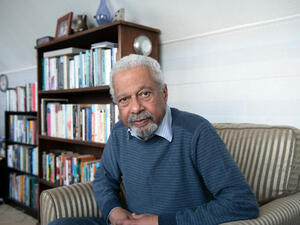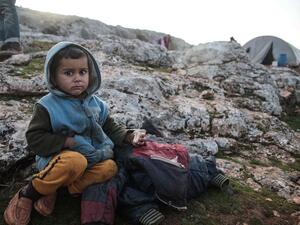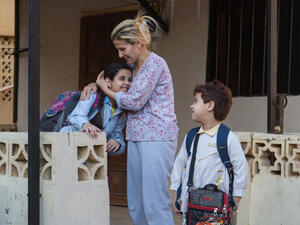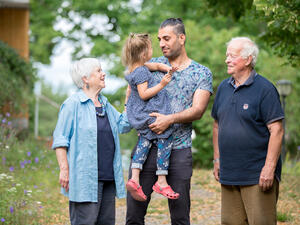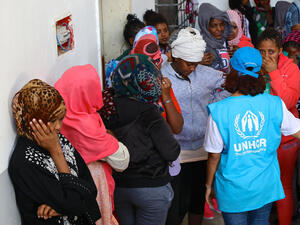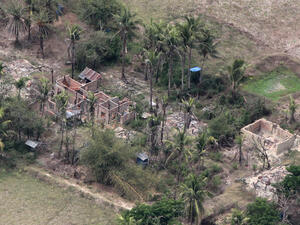Time to reciprocate for Pakistan's decades of generosity to refugees, says Deputy High Commissioner
Time to reciprocate for Pakistan's decades of generosity to refugees, says Deputy High Commissioner
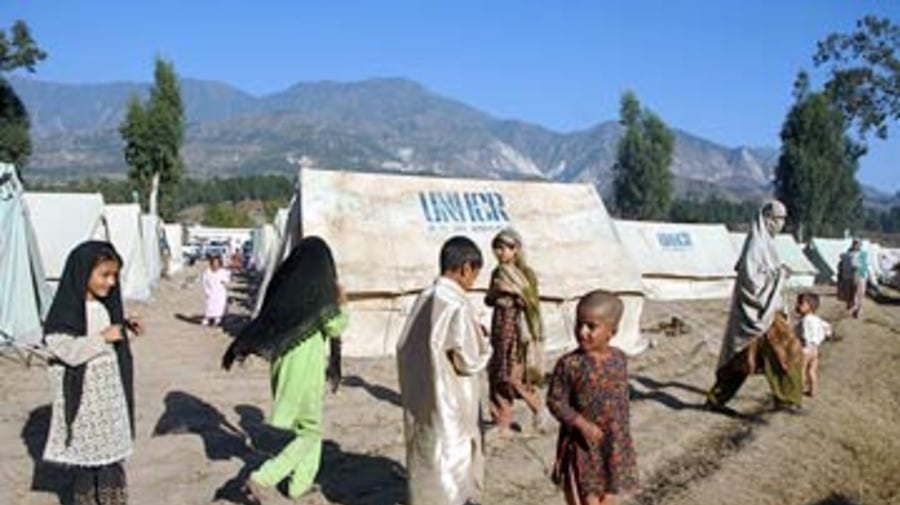
Daily life in Bassian camp, one of eight temporary camps set up by UNHCR and the Pakistani military to house people displaced by the earthquake, Balakot, North West Frontier Province.
GENEVA, October 26 (UNHCR) - Noting Pakistan's nearly three decades of support for one of the world's biggest refugee populations, Deputy High Commissioner Wendy Chamberlin said Wednesday the international community must now stand with the Pakistani people as they struggle with the devastation of South Asia's Oct. 8 earthquake.
"It's payback time. The government and people of Pakistan stood by us and by refugees for decades," Chamberlin said in prepared remarks for a high-level meeting Wednesday in Geneva on humanitarian assistance for quake-affected communities. "Now we must stand by them."
Pakistan hosted over 6 million Afghan refugees over a period of 25 years, many of whom have now gone home in one of the largest ever UNHCR repatriation operations that began in 2002. More than 800,000 Afghan refugees, however, remain in Pakistan's North-West Frontier Province and other areas affected by the quake.
"On October 8, many of the Pakistani communities that had so generously welcomed their Afghan neighbours for all those years suddenly found themselves massively displaced - homeless, separated from family, entire towns and villages obliterated," Chamberlin said.
"Within hours of the earthquake, we moved to empty our UNHCR warehouses both in Pakistan and Afghanistan. We immediately rushed family tents, cooking stoves, blankets, sleeping bags, plastic sheeting, mattresses, soap, jerry cans to the earthquake-stricken Afghan refugees and Pakistani communities."
But as the days passed and the toll of dead and homeless mounted, she said, the refugee agency realized its supplies already in the region were not nearly sufficient to meet the enormous needs. High Commissioner for Refugees António Guterres - who was on mission Wednesday in Japan - decided to use stockpiles from UNHCR warehouses all over the world.
UNHCR joined forces with NATO to mount an airlift of 860 tonnes of supplies from Turkey to Pakistan. Chamberlin said the agency was extremely grateful to the NATO member states that have so far contributed aircraft for the ongoing operation - Turkey, France, Greece, the United Kingdom, Denmark, Italy, and the United States.
With the rapid approach of winter in the region, the provision of huge amounts of aid to shelter, feed and care for hundreds of thousands of people has become urgent. The NATO-UNHCR airlift received a boost on Tuesday with the addition of a giant Boeing 747 cargo jet, which can carry about eight times the tonnage of the military C-130s that have been ferrying supplies to Islamabad since Oct. 19. The first 747, carrying nearly 80 tonnes of UNHCR aid, arrived Wednesday morning in the Pakistan capital.
As of Wednesday, more than 750 tonnes of UNHCR supplies had been sent to Pakistan from UNHCR stockpiles in Turkey, Jordan, Dubai and Copenhagen. Other items had been trucked from neighbouring Afghanistan.
The revised UN flash appeal for South Asia issued at Wednesday's meeting in Geneva was for a total of $549.6 million, up from the $312 million the United Nations initially sought on Oct. 11. UNHCR, which has been asked by the Pakistani government to help set up temporary camps for the displaced as part of the UN effort, has increased its portion of the appeal from $22 million to $30 million. So far, the refugee agency has received $4 million.


